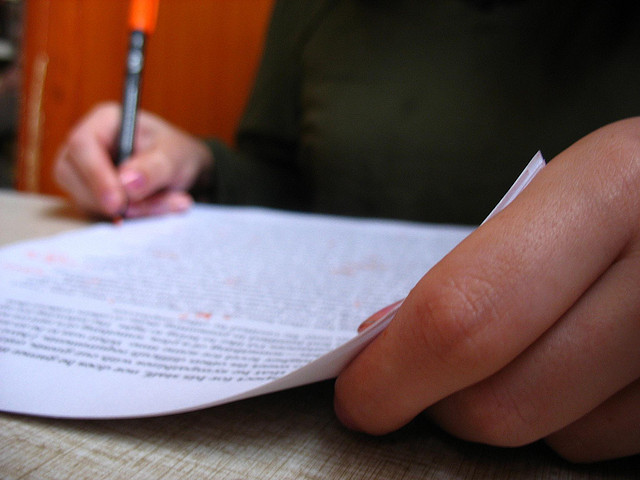rabble is expanding our Parliamentary Bureau and we need your help! Support us on Patreon today!
Cheating. Depending on who you ask, it’s become epidemic in Canadian universities.
A 2014 CBC survey of 42 universities showed that more than 7,000 students were disciplined for academic misconduct in the 2011-2012 academic year. While it demonstrated a cheating rate of less than one per cent, experts say students are cheating much more than universities are able to detect. In a 2007 study conducted by Julia Christensen Hughes and Donald McCabe, 53 per cent of nearly 15,000 Canadian undergraduates admitted to cheating on written work in the year prior to the survey.
So is cheating a problem? And how are faculty and staff adapting?
At 602 cases (2.6 per cent of the school’s population), Carleton University had the highest punishment rate in the CBC survey. We’ll hear the voices of three faculty members, who will give us their firsthand perspective on the influx of academic dishonesty in Canadian schools.
We’ll begin with Greg Fisher, an associate professor in the Department of History. He says cheating is a major problem, and comes mainly in the form of plagiarism. In his seven years teaching, it’s never failed to show up in his courses:
In one class I taught recently we had a 20 per cent plagiarism rate, which is really ridiculous. But these were students who never attended class, were constantly asking for notes, and had no grasp of course material.
I am merciless with intentional plagiarism. Everything goes to the Dean’s office. Usually such cases are not difficult to detect: they include language or terms that were never discussed in class, they’re written in a manner different from other assignments, and they seem to be at a much higher level or much lower level than the rest of the class (“The Roman Empire was big — really, really big” — not kidding).
Putting together evidence of plagiarism takes a great deal of time. One report I submitted last year contained 50 pages! This year I even changed my evaluation schemes in response to excessive plagiarism in second-year history classes. It is a scourge, and we need better tools to deal with it.
David Dean is a history professor and co-director of the Carleton Centre for Public History, and although he’s never caught a student cheating on a test, plagiarism is another story. He says many students simply don’t know what constitutes plagiarism, but some are more deliberate in their actions. However, he believes there may be more to the situation than meets the eye:
You know, while this is a learning issue, it’s also the consequence of some structural problems at universities. We assume that when someone is a full-time student, they are devoting most of their time to university work. When I survey my second-year class however, I find that over half are working from 10 hours a week to 30. In other words, they really aren’t “full-time” students.
The result is stress, particularly at key weeks of the year. Students are less attentive about things like citations and plagiarism and have less time to draft and re-draft essays. In worse-case scenarios, they can resort to consciously plagiarising or copying a previous student’s essay and hoping to get away with it. I had one case of that — an essay copied from one handed in the previous year — three years ago. From that point on, I’ve always changed things up each year with new questions and topics, and new formats for mid-terms.
Jeff Sahadeo is an associate professor in the Department of Political Science. Like Dean, he’s developed strategies that combine course teaching with plagiarism deterrence.
For me, it’s having a number of short writing assignments with quick turnaround and based on specific readings. I can get a baseline of the students’ writing styles, and it’s easier for their major assignment, when I see a divergence, to call them in and question them.
I’ve given up hope that I will make it through a class — even a graduate seminar — without at least one case of plagiarism. There are cases when virtually entire papers are lifted from dissertations or articles that students think that we cannot track down, not really aware of how familiar we are with literature in the field.
The most frustrating thing, besides the anger that a student dares do this and is so blatantly dishonest, is the time it takes to prove the cheating. We have to track down the original source and present a case. All of this is time we could be using to work with good students and develop more creative teaching methods.
Carleton has a strict anti-plagiarism policy, in which every case is referred directly to the dean of whichever faculty a student is found cheating in. Students may be asked to write the paper again, take a zero for the assignment, or fail the course. In more serious cases, they may be expelled.
Regardless of the punishment, all three professors acknowledged one unintended consequence: when students cheat in school, they’re not just cheating themselves — they’re cheating their professors and peers too.
All three submissions have been condensed and edited for clarity and style.
rabble is expanding our Parliamentary Bureau and we need your help! Support us on Patreon today!



